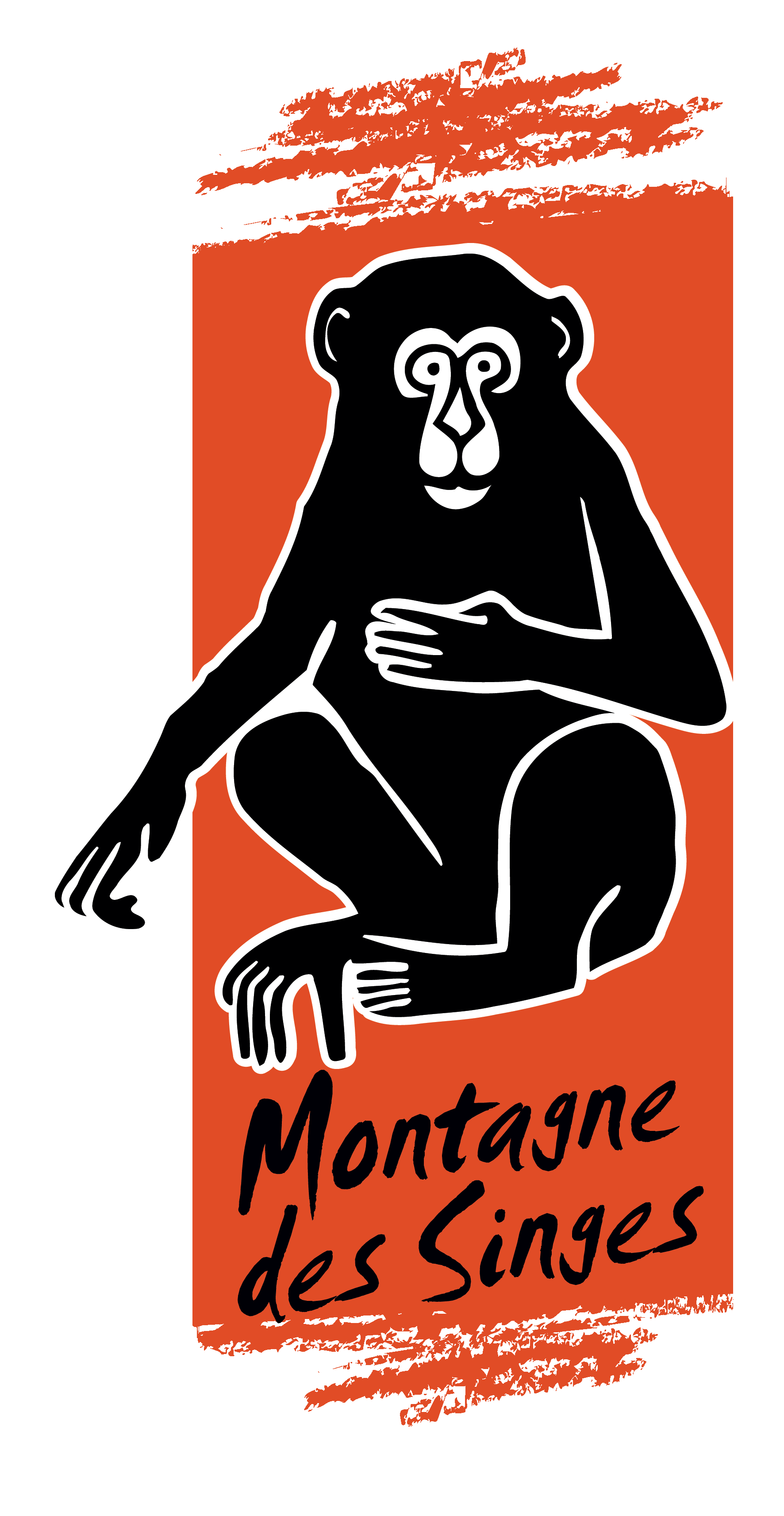
Portrait of the Barbary Macaque
45 to 64 cm
- 13 kg - 17 kg
Life expectancy - 23 years
A valuable genetic reserve
Today, the population of wild Magots is estimated at less than 8,000 individuals…find out more
The Barbary macaque has been classified as an endangered species by the IUCN since 2008, due to the sharp decline in wild populations (by more than half in 40 years!).
Barbary macaques (Macaca sylvanus) are native to the mountainous regions of North Africa, Morocco and Algeria, where they live in forests, gorges and rocky ridges.
Groups
Barbary macaques live in groups made up of both males and females. Each group has its own area or “home range”, with food, water and trees or gorges where the monkeys spend the night, safe from predators.
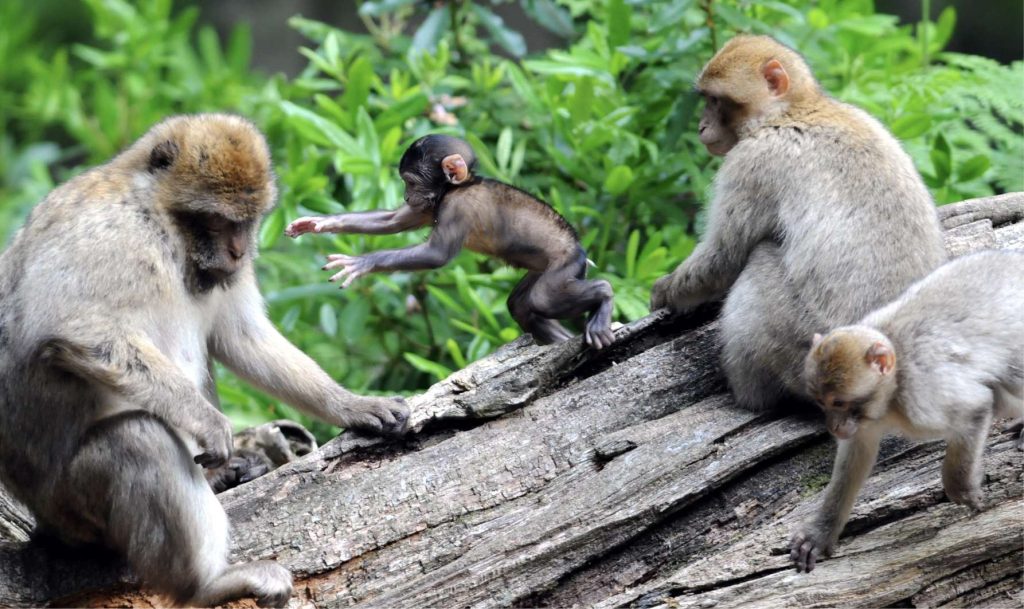
Well-adapted to a temperate climate
Barbary macaques live in a temperate climate and are used to hot and dry summers and cold, snowy winters.
This is why at ‘La Montagne des Singes’ they can live outside all year-round.
They are well adapted to this type of climate, protected against the cold by long, thick fur during the winter and they moult in the spring.
What do they eat?
In the wild, they eat more than 200 different plants. They also eat insects (such as grasshoppers, caterpillars, spiders and even scorpions).
In our parks, we give them fresh fruit, vegetables and cereals every day. In the forest, they will also find grass, buds, leaves, acorns, and insects.
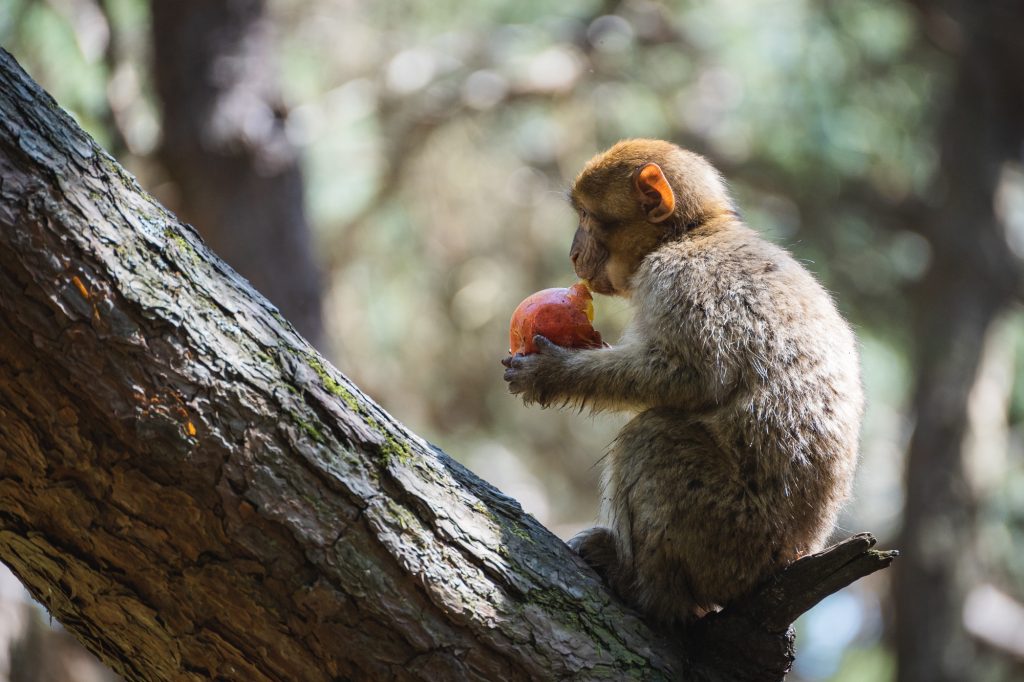
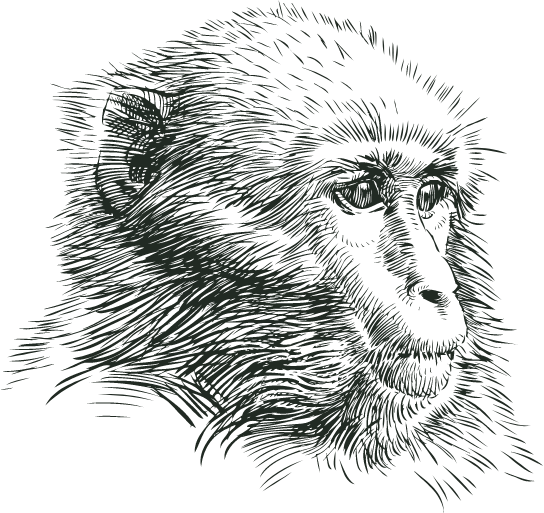
A hierarchical society
A male, usually aged between 10 and 15, heads the hierarchy. He holds the position for several years before being replaced by a younger male.
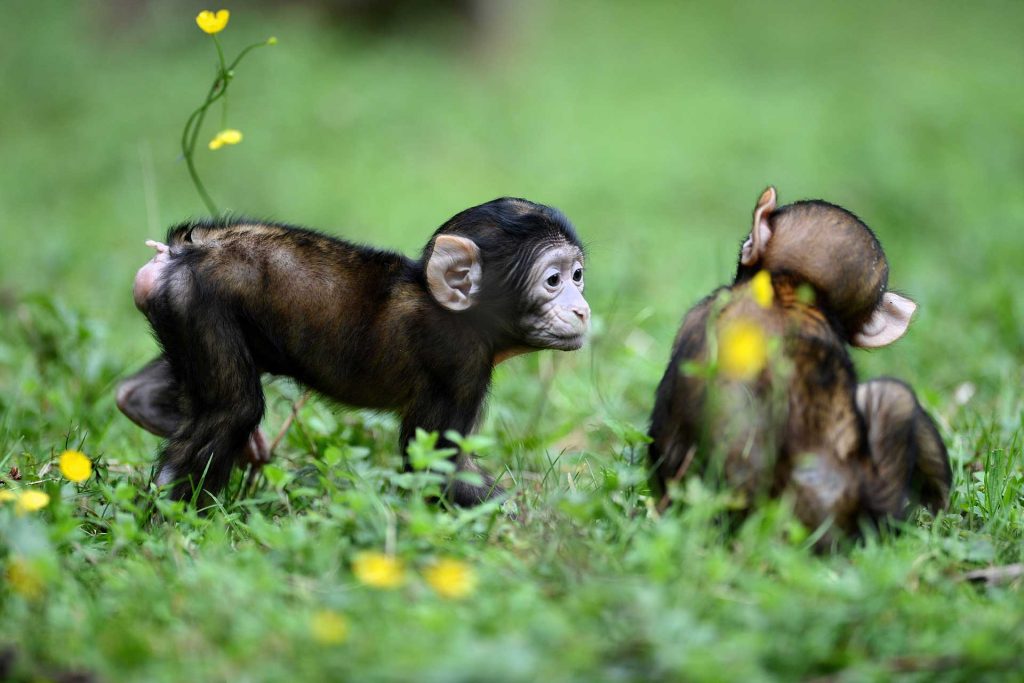
Males and babies, a very special relationship
For Barbary macaque, paternity is not known; during the breeding season, males and females mate with several partners.
Unlike most primates, males have frequent and intense contact with youngs: they carry, guard and protect them from the moment they are born.
Furthermore, they use babies as a social intermediary to enter into friendly contact with other males in their group. This behavior allows them to strengthen bonds between them and create powerful alliances.
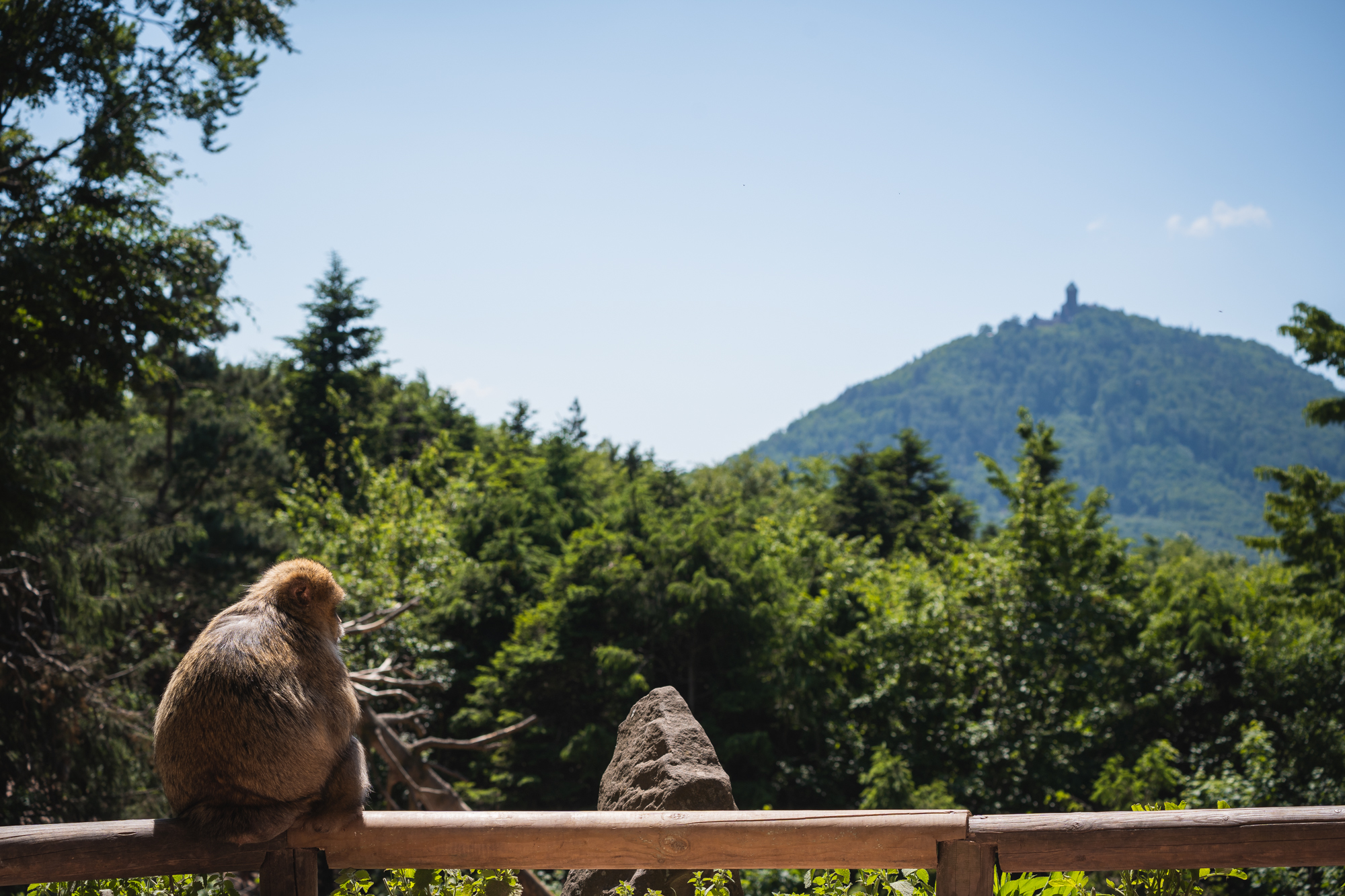
Newsletter
Stay informed!
Get the latest news, updates and offers from Montagne des Singes

